Speed Dating Activity for Absolute Value, Opposite, Reciprocal, and Opposite Reciprocal
This blog post contains Amazon affiliate links. As an Amazon Associate, I earn a small commission from qualifying purchases.
Speed Dating is one of my favorite ways to get students out of their seat to practice. I only use this practice structure with topics that allow students to quickly do a problem in their head. If a problem type requires students to show work to figure out the answer, I will choose a different structure such as a question stack.

In case you’re not familiar with the premise of speed dating in the classroom, here’s a brief overview:
1. Create a deck of cards that has a question on one side and the answer on the other side.
2. Pass out the cards to students with the question side facing up.
3. Instruct each student to solve the problem in front of them before checking their answer by flipping the card over.
4. Have students stand up and find a partner.
5. Students take turns quizzing their partner and coaching/praising them.
6. Once the pair has successfully answered both questions, the partners should trade cards.
7. Find a new partner.
8. Repeat.
So, why is it called speed dating?
In speed dating, the goal is to meet as many people as possible in as little time as possible. At the end of each “mini date,” you trade information in case you later decide you want to get in contact. My high school students normally love the analogy. If you don’t think your students can handle the dating analogy, you can call this activity it’s other common name: Quiz, Quiz, Trade.
Our first speed dating activity of this year was created to review the following vocab words: absolute value, opposite, reciprocal, and opposite reciprocal. In the past, I’ve done speed dating with recognizing inequalities, naming polynomials, significant figures, and logarithms.
This summer, I had an epiphany. Normally, I either hand write my speed dating cards (works in a pinch, but makes it hard to share) or type them up in publisher and print/laminate them (lots of work, but easy to share/reuse). Last year, I had a chance to buy a BUNCH of printable business cards from NAEIR.
These have been a game changer for making reusable activities for my classroom. After I run them through my printer, I just snap them apart and put them in a small ziplock baggie for each group. No laminating and no cutting needed!
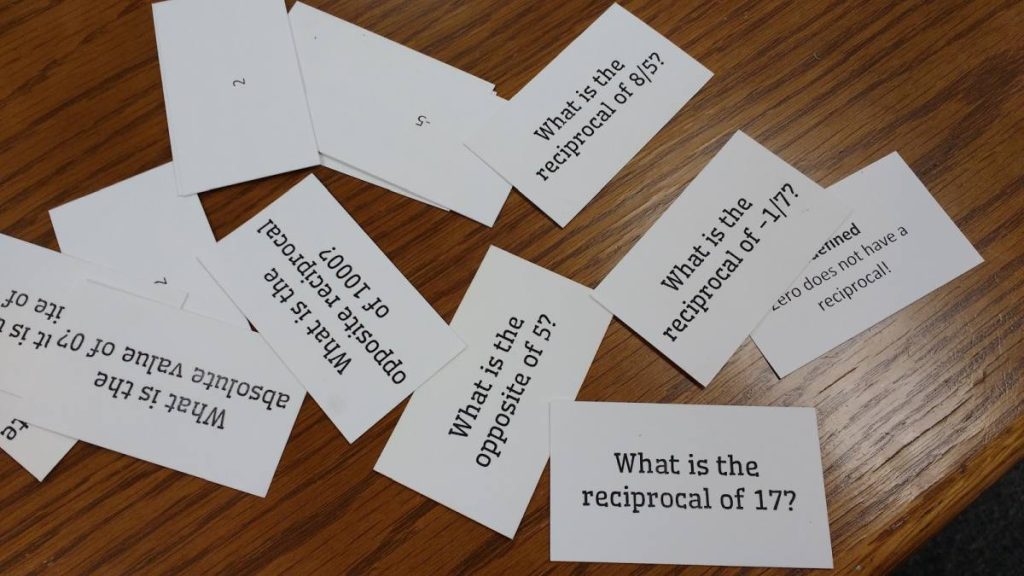
Here are a few example cards:
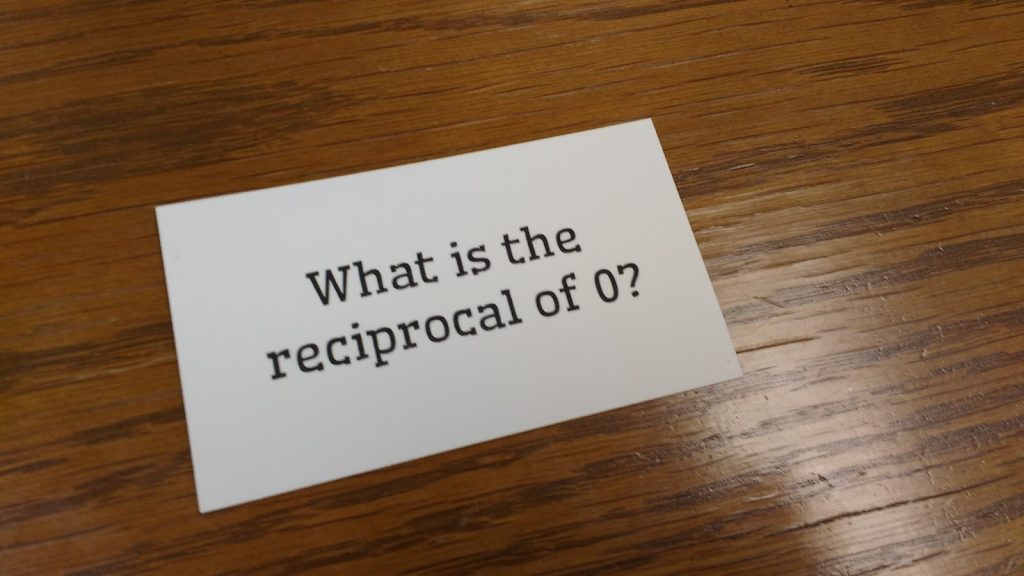
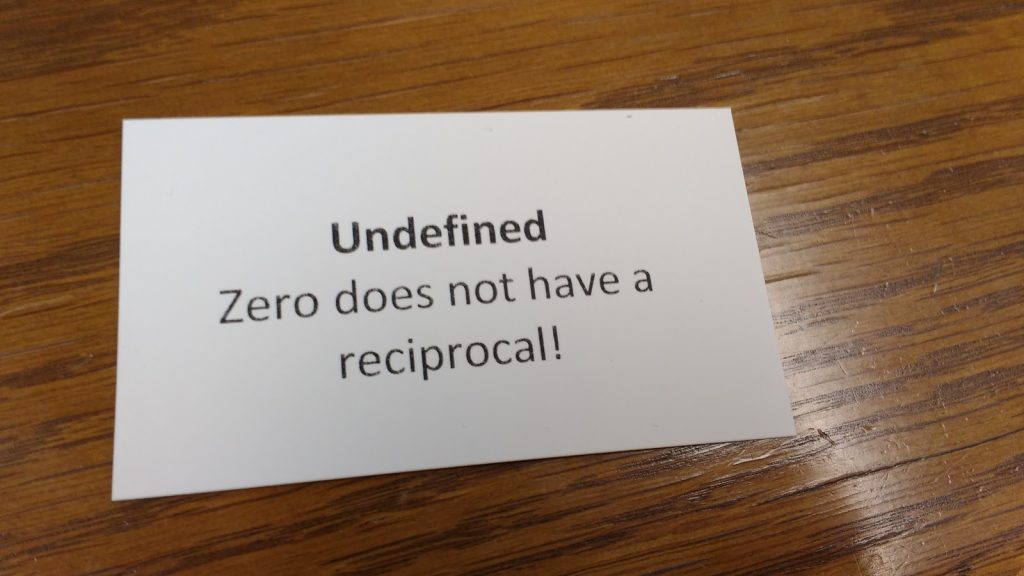
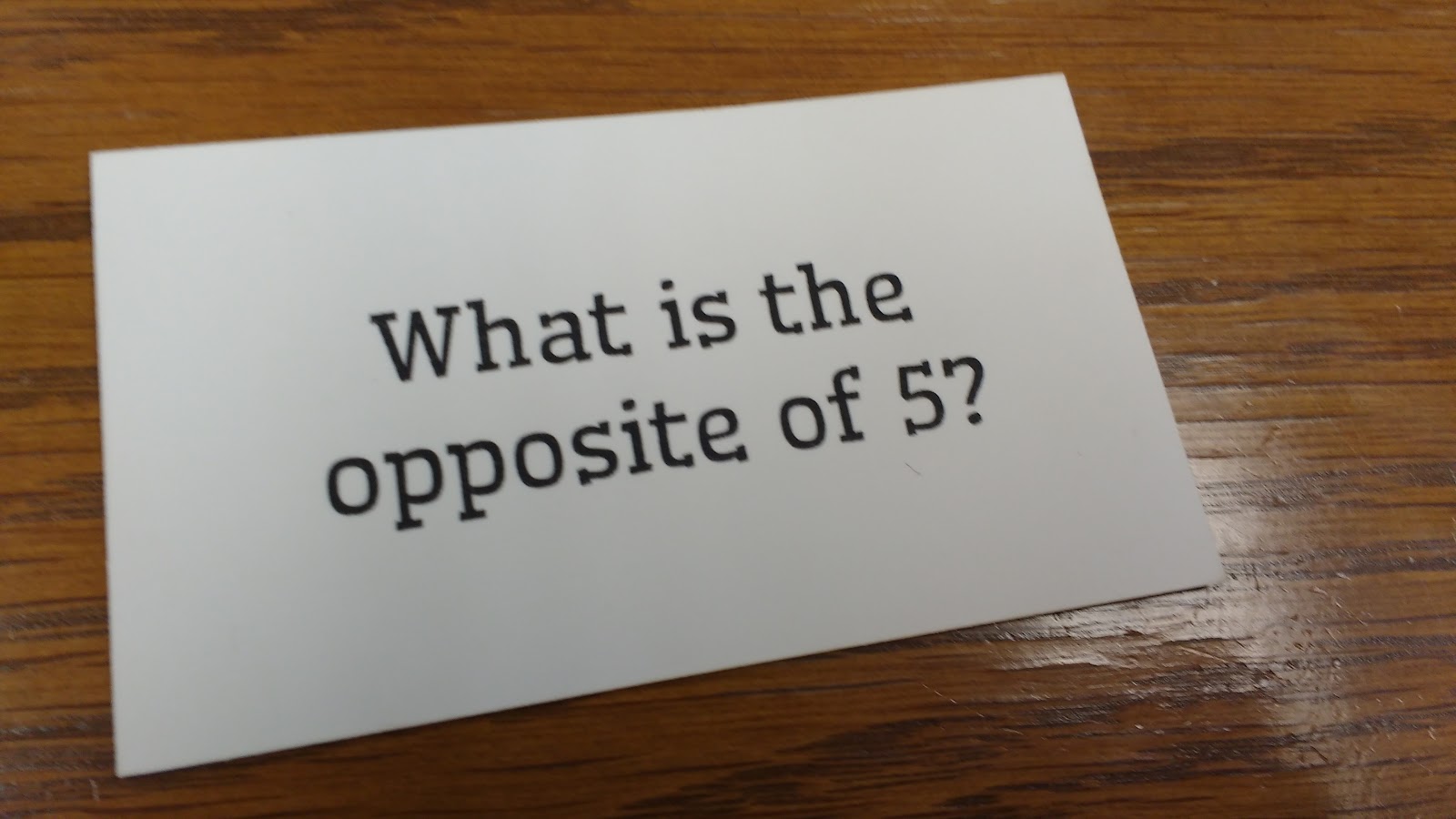
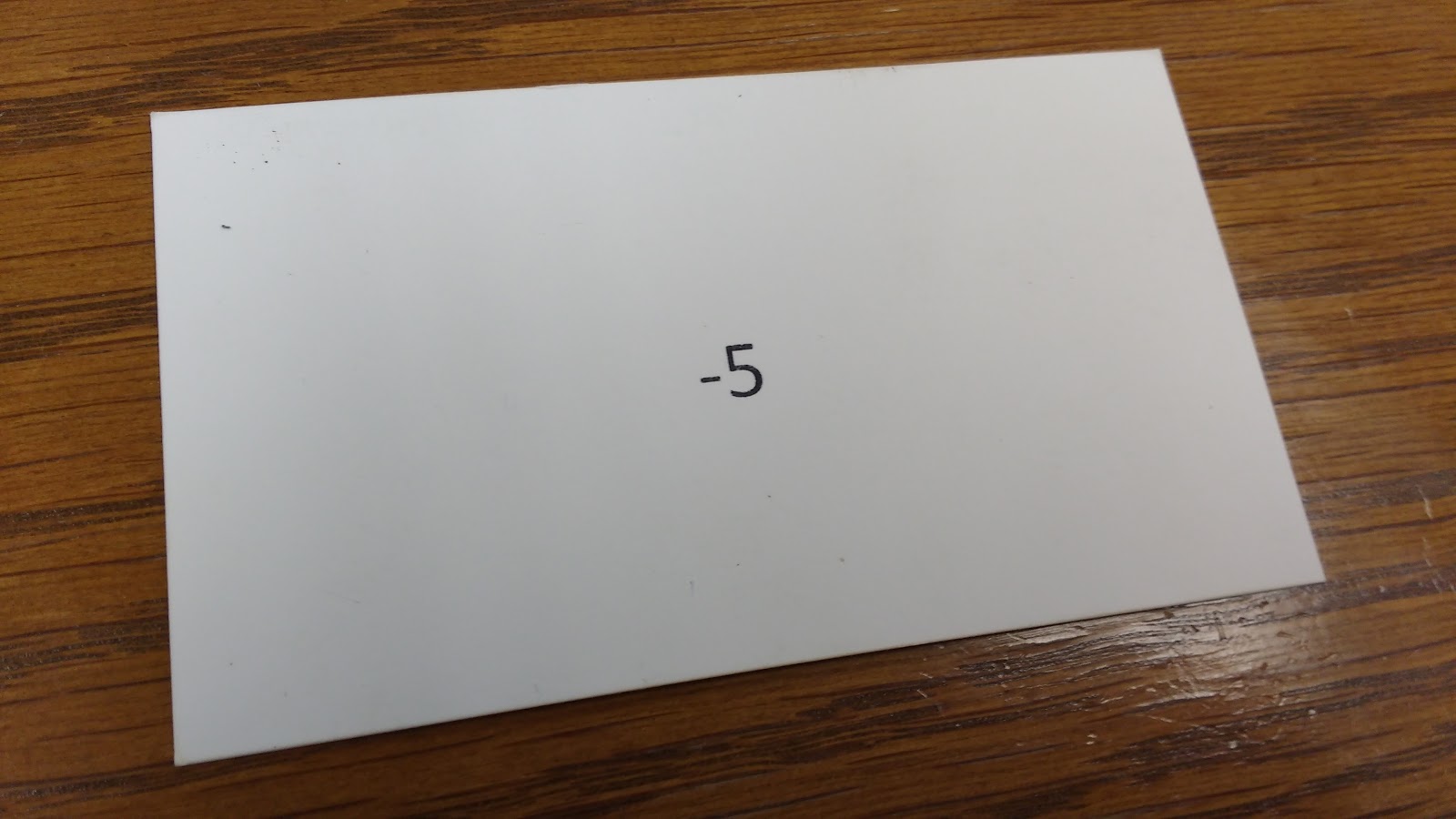
Here’s an action shot of my students during our speed dating adventure. It was so hard to block out their precious faces because they were full of smiles and laughter. You could truly tell that my students were enjoying themselves while practicing algebra!
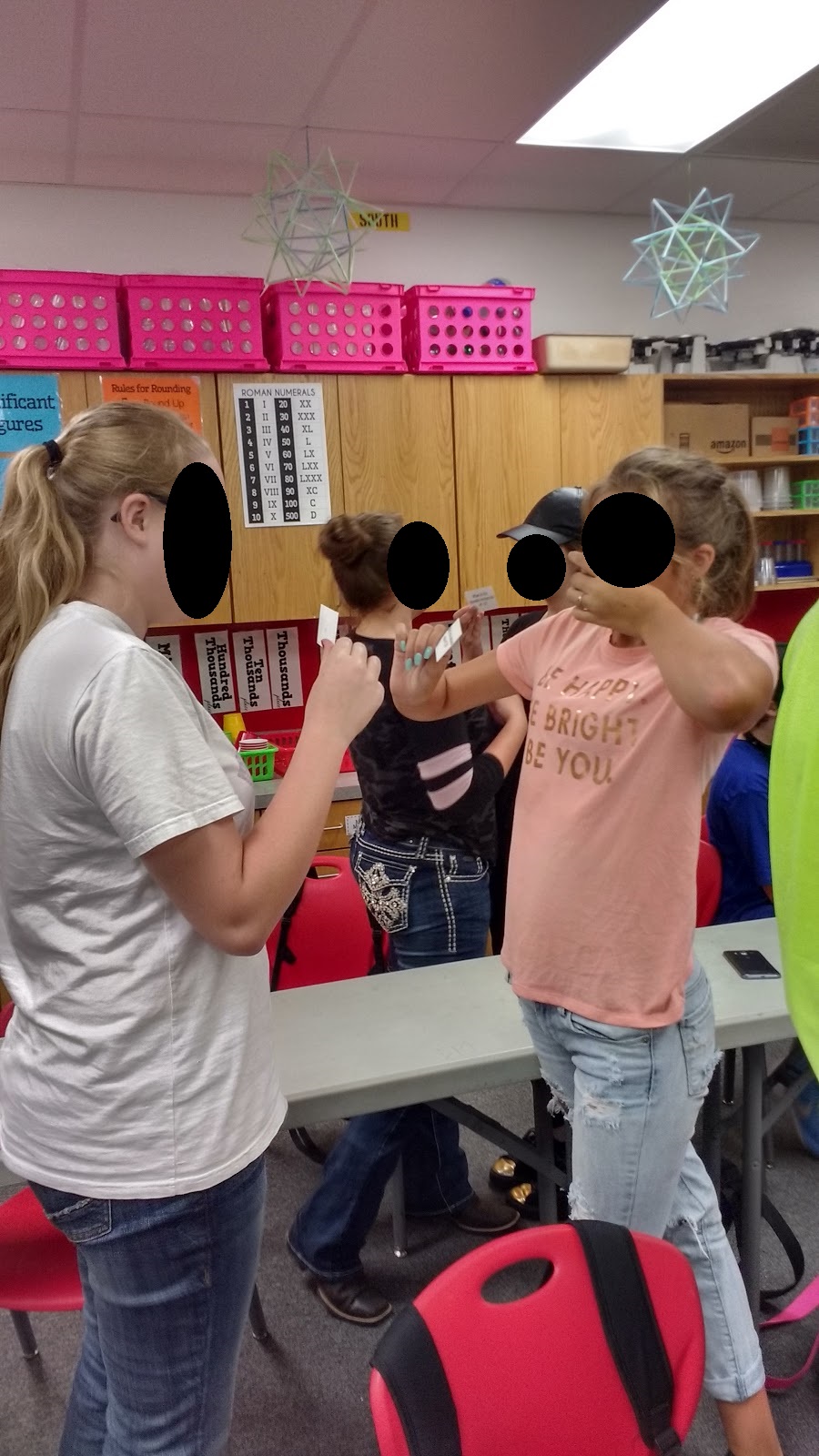
My business card sheets have 10 cards each, so I made two sheets for a total of 20 cards. My largest class this year has 16 students, so this was plenty.
Have a peek at what my templates ended up looking like!
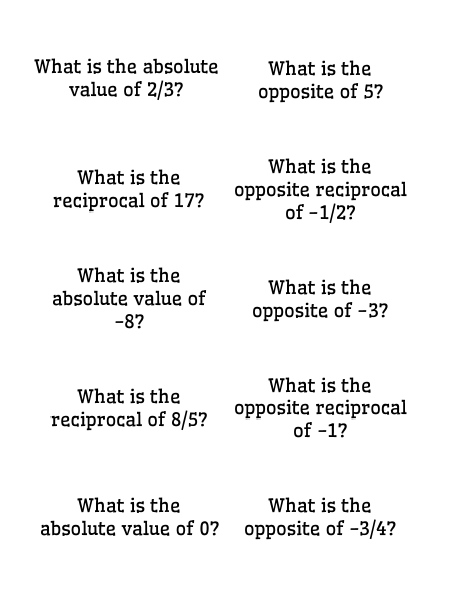
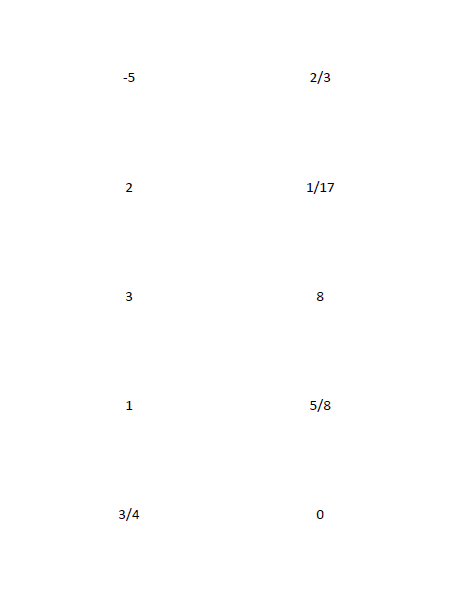
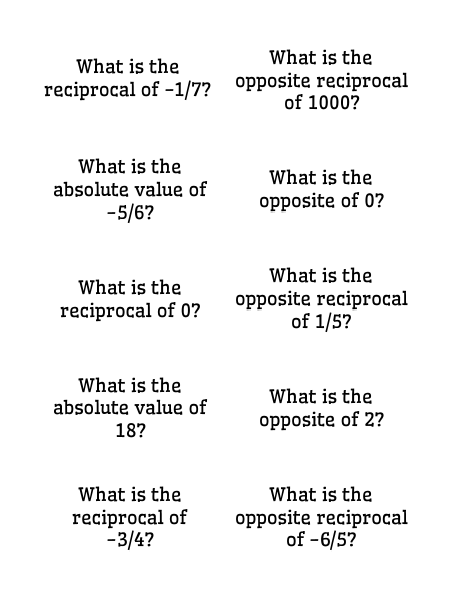

I intentionally printed the questions in a bold font and the answers in a small font so that students couldn’t easily see the answers through the cards. Believe me, my students tried!
If you don’t have access to Avery Clean Edge Business Cards, you can still print them on cardstock and cut them apart. You’ll just need to trim around the edges with the paper chopper so all of the cards come out the same size.

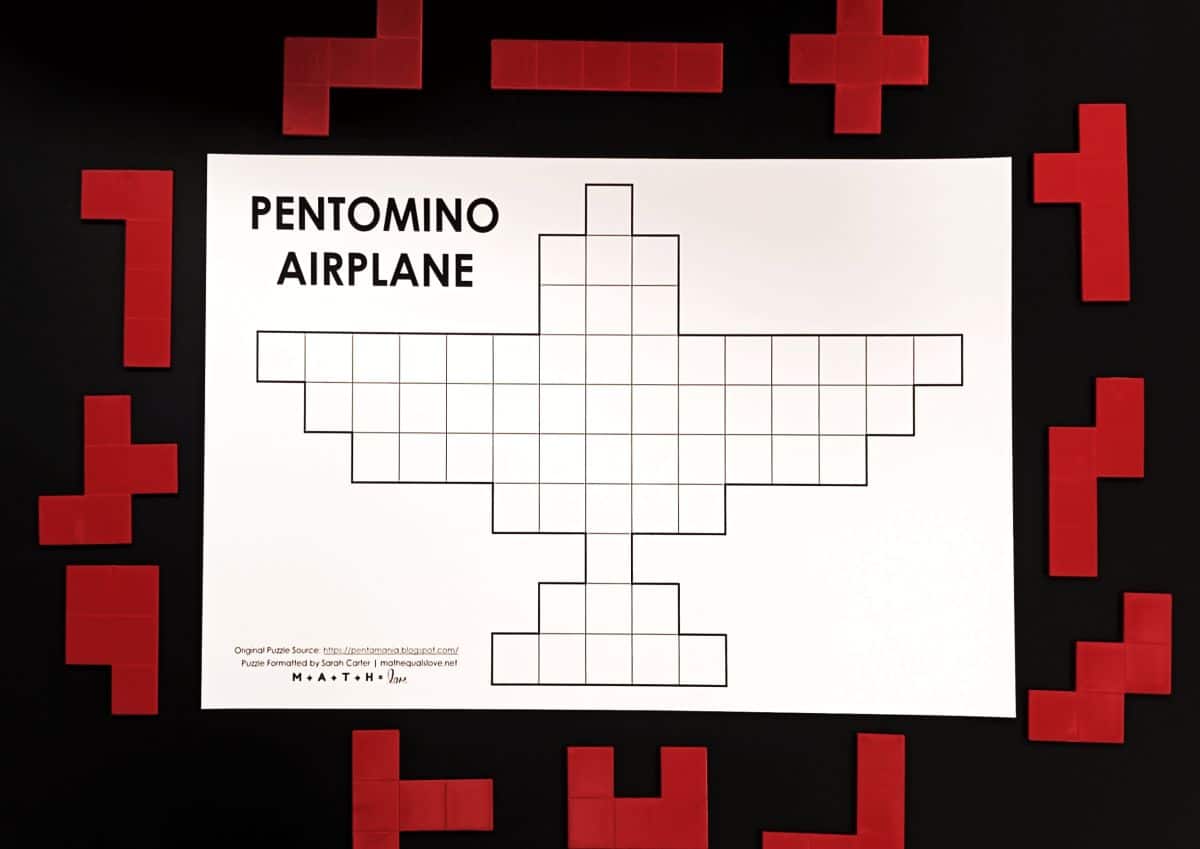
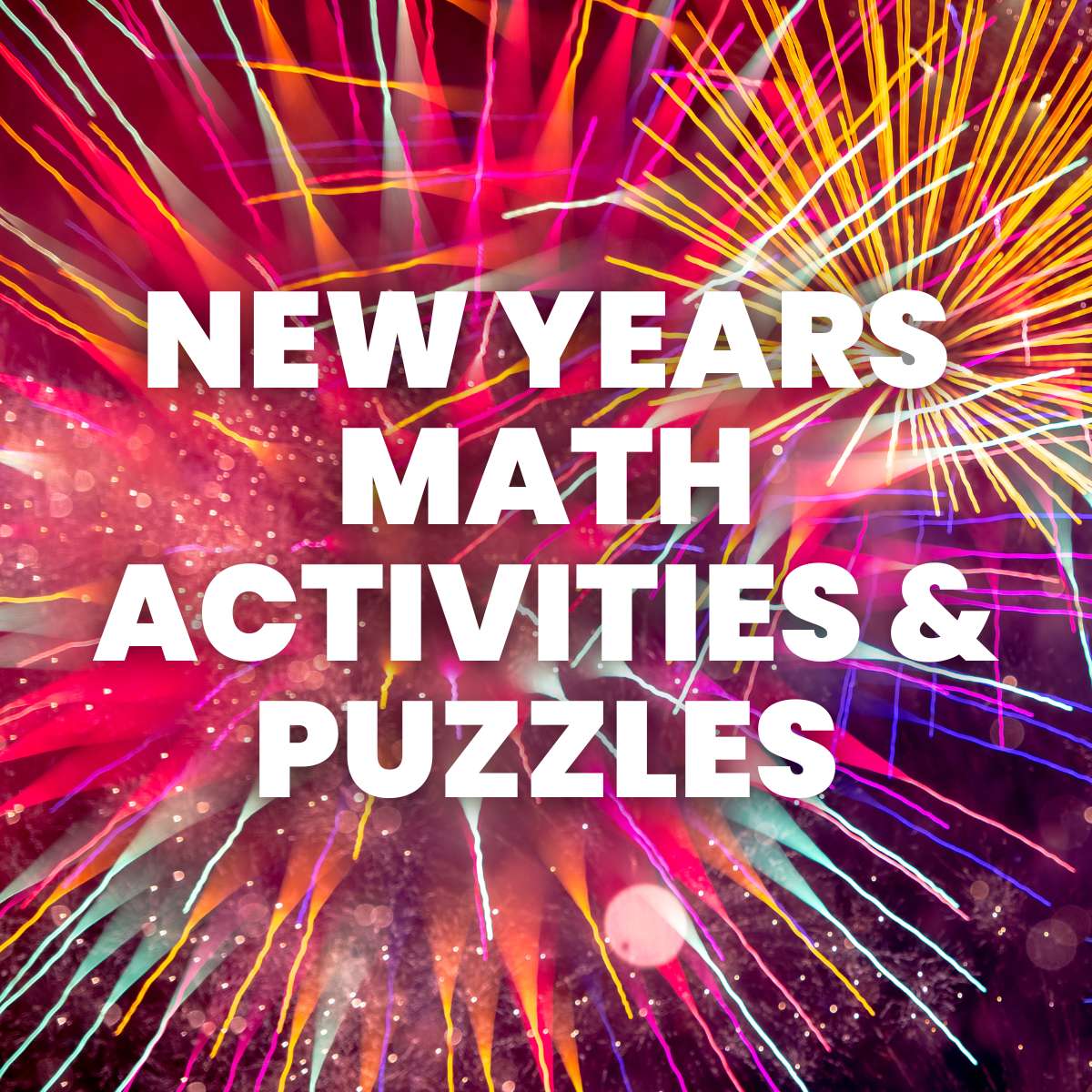
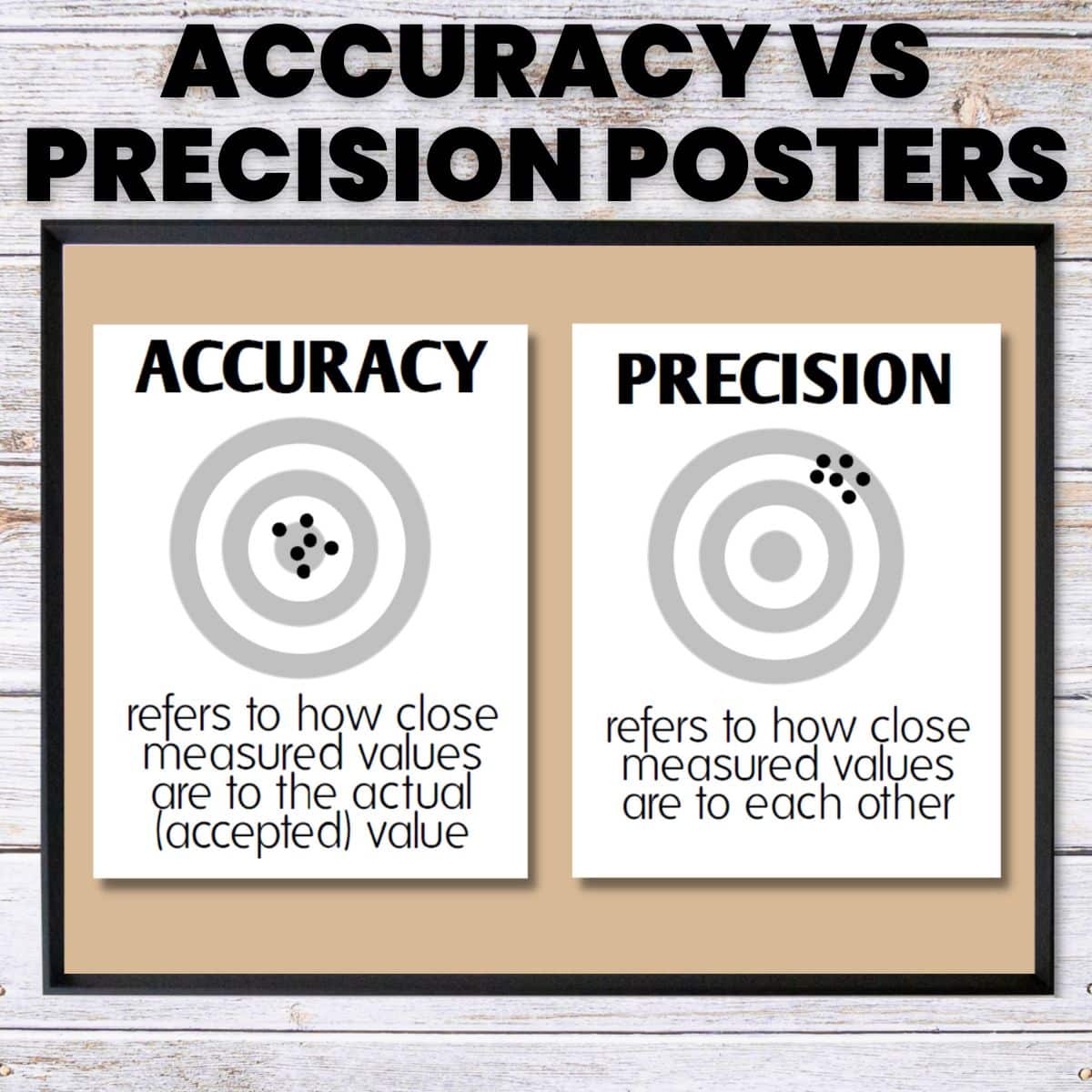
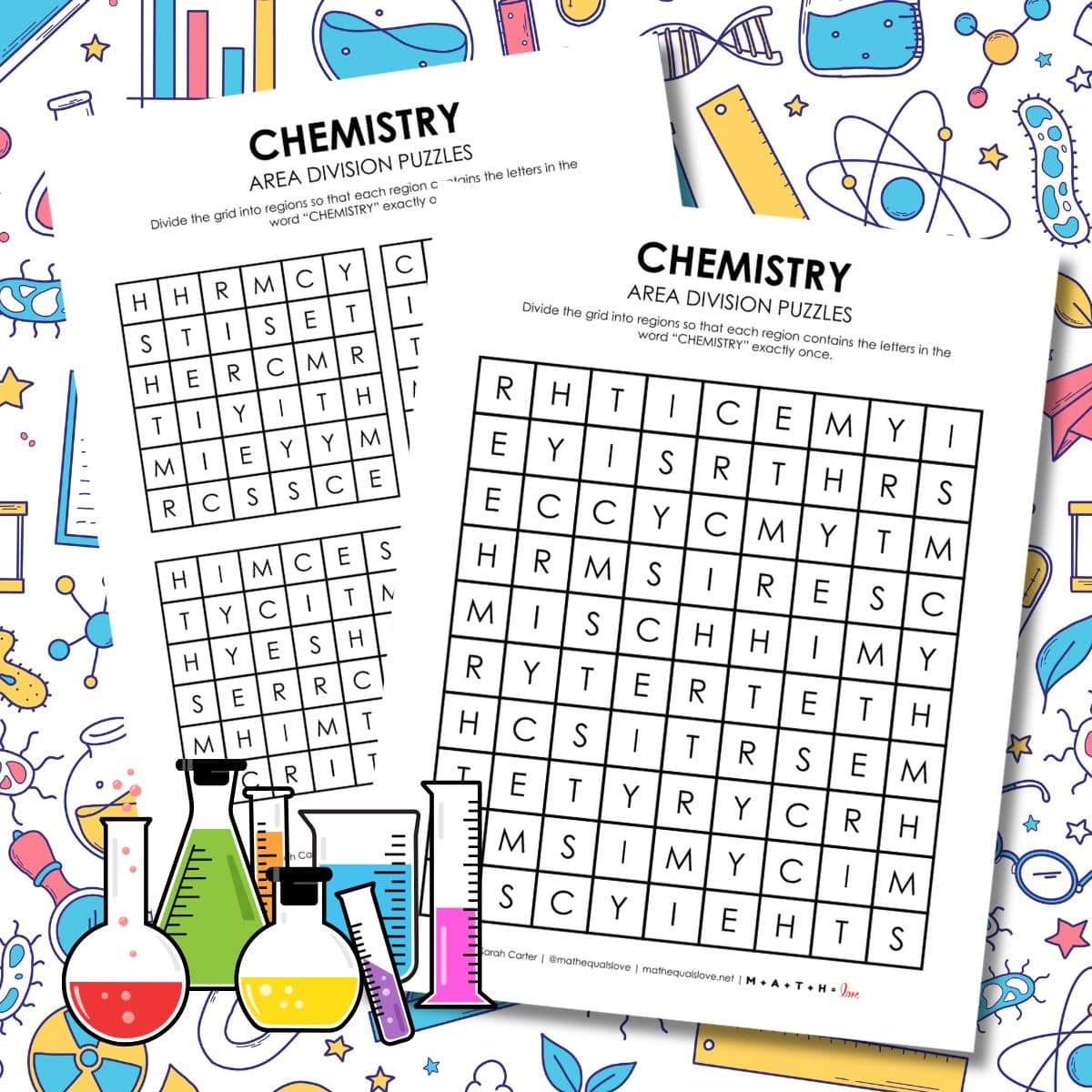
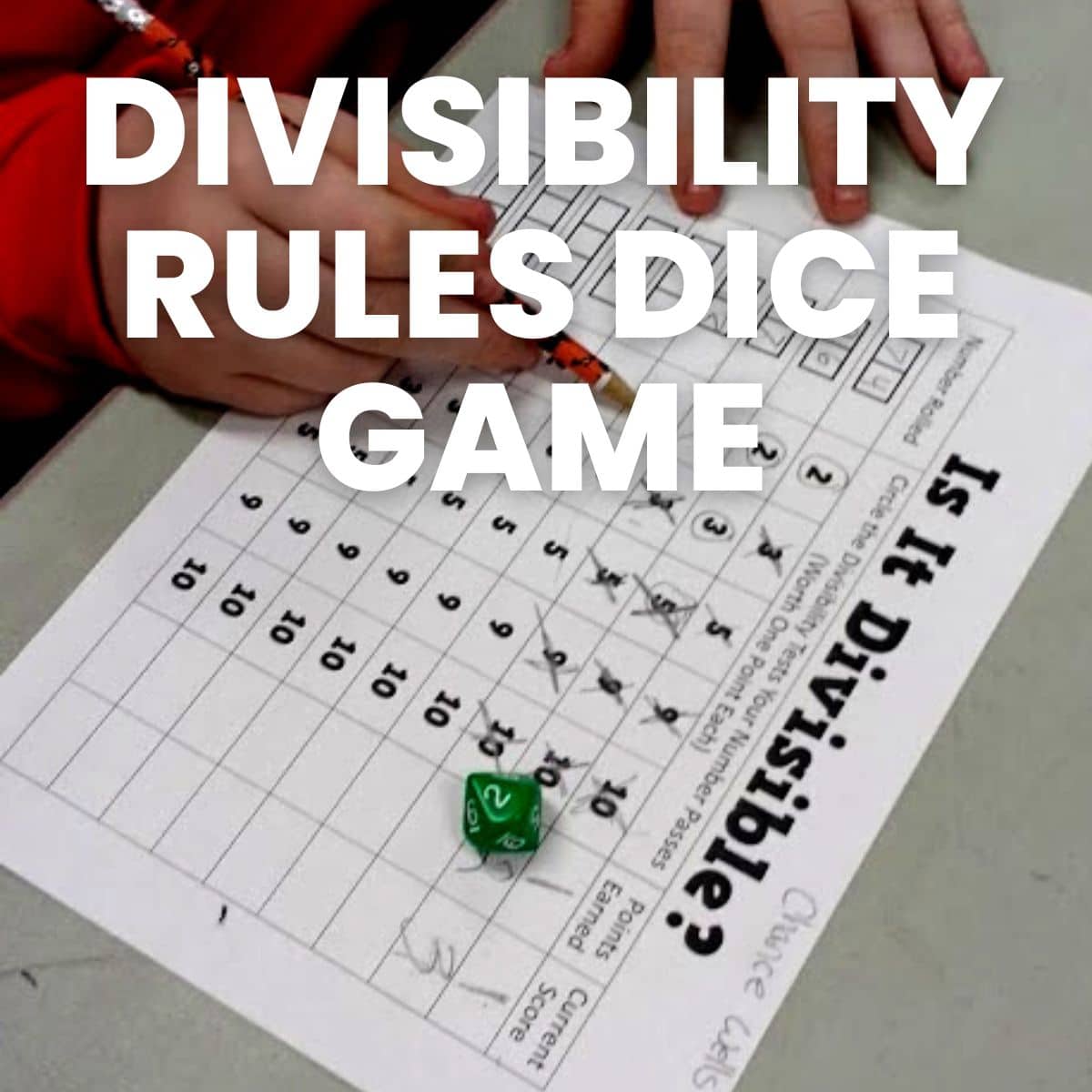
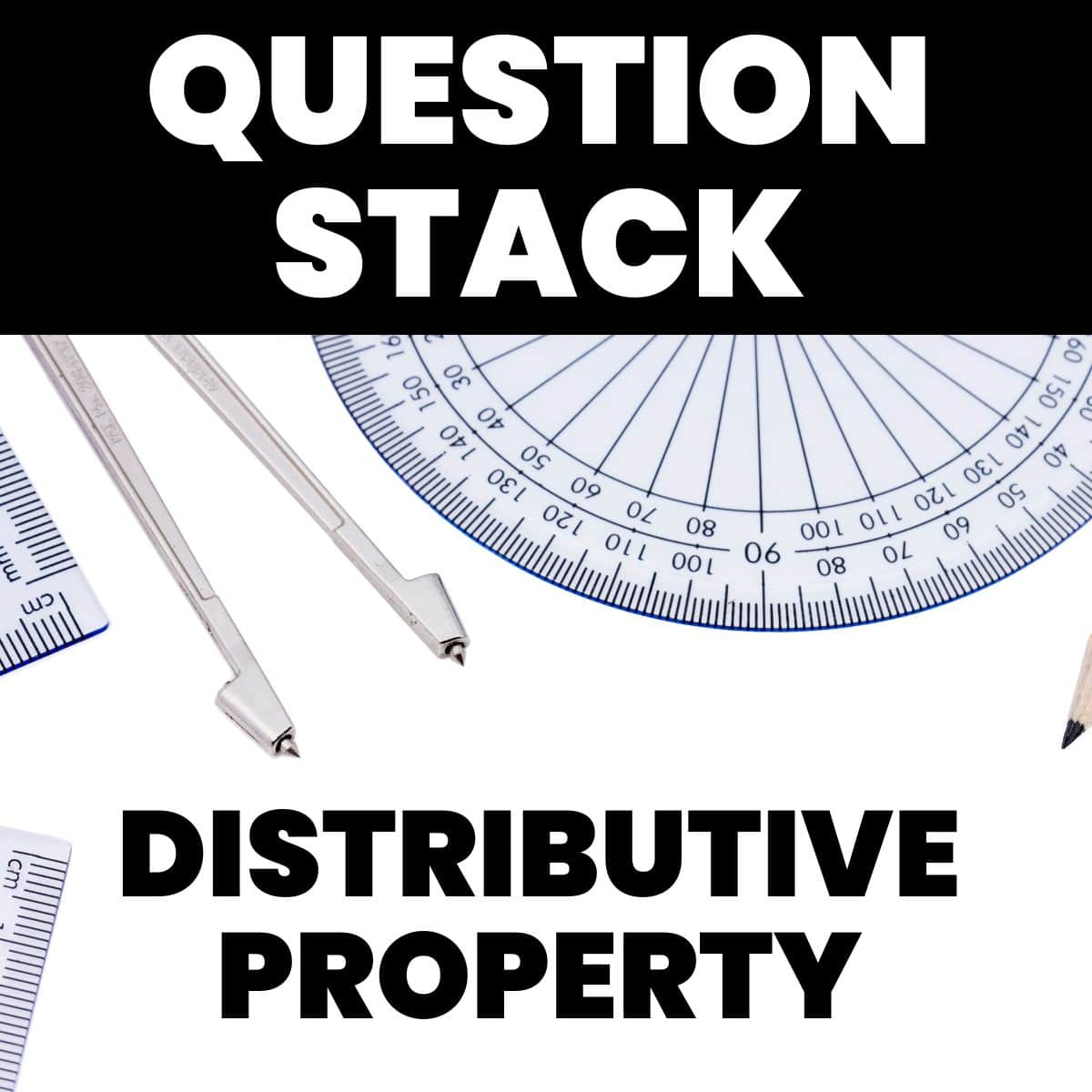
I use speed dating in my German 2 class to practice past participles. It's kind of like walking flash cards. It works quite well, but one problem I run into is that students don't necessarily "date" all of the possible past participles if they just move around the room randomly. Do you have this problem, or are your classes small enough that it isn't an issue? Last time I tried a more organized setup where students formed two concentric circles and one circle rotated to find a new date. It took FOREVER to get my classes set up to do this, but it seemed to increase the number of different words they saw. Just wondering if you have this issue too?
When I do it, I tell them that they can't date the same question they have already seen. Since they are switching cards, they can date the same person multiple times, but not the same question. I also call myself the matchmaker. When ever someone seems to be slow to pair up, I pair them with someone else. You could also try telling them that they need to have a specified number of dates. As far as the concentric circles, you can split the class in two and tell one group to form a circle. Once that is done, tell the remaining group to go stand in front of someone in the circle. This is the fastest way I know to set them up. Good luck!!